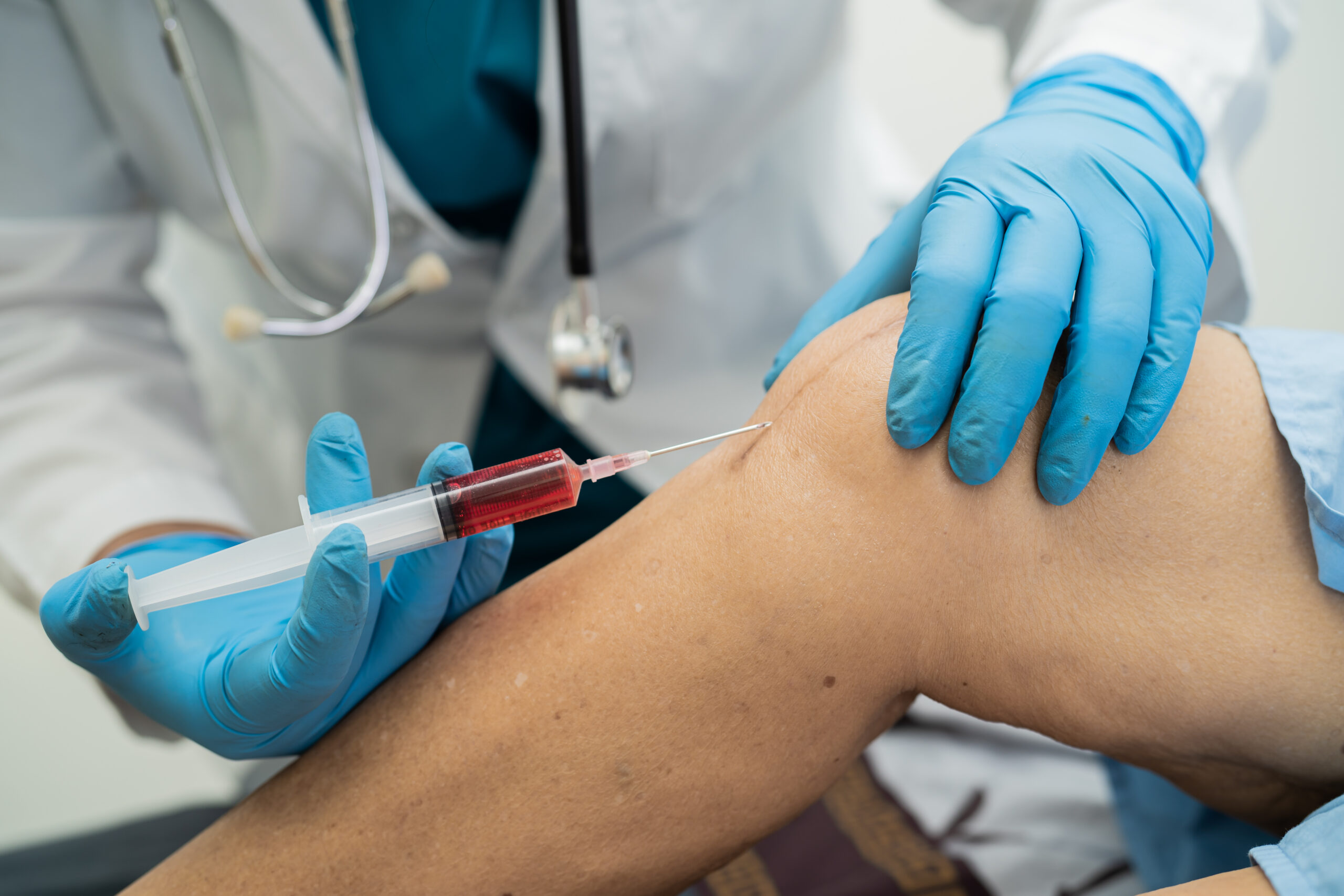Regenerative medicine is a rapidly growing field that aims to develop innovative therapies that can repair, replace, or regenerate damaged or diseased tissues and organs. Platelet-rich plasma (PRP) injections are a type of regenerative medicine that can promote healing and tissue regeneration PRP injections have been gaining popularity as a treatment option for various orthopaedic injuries, including joint injuries. This regenerative medicine technique uses a patient’s own blood to promote healing and improve function and has shown promising results in relieving joint pain and restoring mobility.
PRP injections are prepared by drawing a small amount of blood from the patient, which is then processed to concentrate the platelets and growth factors that are responsible for tissue healing and regeneration. The concentrated PRP is then injected directly into the affected joint, where stimulates the natural healing process and reduces inflammation.
PRP injections have numerous benefits in joint injuries
- Reduced Pain: PRP injections can help reduce pain in the affected joint by reducing inflammation and promoting tissue healing. This can help patients avoid the use of painkillers or anti-inflammatory medications, which have side effects.
- Improved Function: PRP injections can help improve joint function by promoting the growth of new tissue and restoring damaged tissue. This can help patients regain mobility and return to their normal activities.
- Non-Surgical: PRP injections are a non-surgical treatment option that can help patients avoid more invasive procedures, such as surgery.
- Minimal Side Effects: PRP injections are generally safe and well-tolerated, with minimal side effects. The most common side effect is temporary pain or discomfort at the injection site.
- Long-Lasting Results: PRP injections can provide long-lasting results, with some patients experiencing pain relief and improved function for up to a year or more.
- Versatility: PRP injections can be used to treat a wide range of joint injuries, including osteoarthritis, tendinitis, and ligament injuries.
While PRP injections have shown promising results in joint injuries, it’s important to note that they may not be for everyone. Patients with certain medical conditions, such as blood disorders or infections, may not be candidates for PRP injections. PRP injections are a promising treatment option for joint injuries, with the potential to reduce pain, improve function, and promote tissue healing.
While more research is needed, PRP injections provide a safe and effective alternative to traditional treatments, such as surgery or medication.
If you are considering PRP injections for a joint injury, come talk to one of our orthopaedic specialists to determine if this treatment is right for you.
This article was written by Dra. P. A. Anthony, Clinica Santa Cecilia Medical Director and General Practitioner. Call us today at +34 95 252 1024 to set up your appointment with Dra. Anthony.
